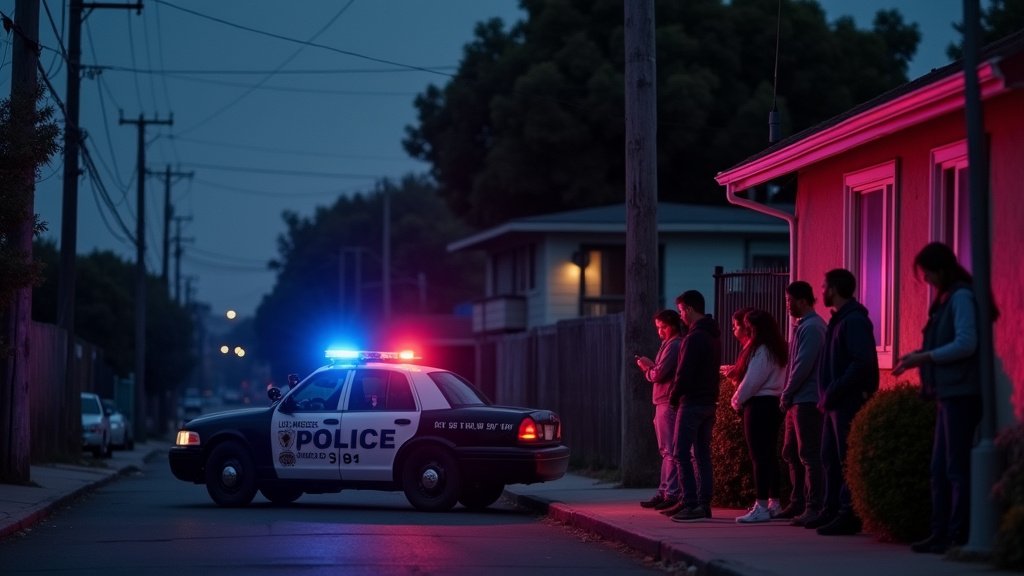A surge in U.S. Immigration and Customs Enforcement (ICE) raids across the Los Angeles area this summer has coincided with a dramatic decrease in calls for police assistance to the Los Angeles Police Department (LAPD). Data obtained by the Los Angeles Times reveals a significant drop in the number of people reaching out for help to local law enforcement during weeks when federal immigration enforcement intensified. This trend has ignited concerns among community advocates and officials alike about a potential rise in underreported crimes and a deepening erosion of trust in public safety institutions.
Steep Decline in Service Calls During Enforcement Surge
In the two weeks immediately following the commencement of intensified ICE operations around June 6, 2025, LAPD calls for service citywide fell by a striking 28% when compared to the same period in 2024. This translated to an average of approximately 1,200 fewer calls per day. During this two-week span, LAPD officers responded to around 44,000 calls, a substantial decrease from the nearly 61,000 calls logged during the equivalent days in June of the previous year. This decline encompassed a wide range of incidents, from serious crimes such as home break-ins and domestic disputes to more routine matters like noise complaints.
Fear of Deportation Silences Communities
Advocates and community leaders point to the heightened fear of deportation as the primary driver behind the sharp drop in police calls. In a city where roughly one-third of the population is foreign-born, the aggressive immigration enforcement tactics employed by federal agencies have instilled widespread anxiety. This fear, they argue, discourages individuals and families, particularly those without legal status, from contacting the police, even when they are victims or witnesses of crimes. The potential consequence is a significant underreporting of domestic violence, assaults, and other offenses, creating an environment where criminals may feel emboldened.
Distrust in Government Fuels Hesitation
LAPD Assistant Chief German Hurtado acknowledged the department’s struggle to reassure the public about their safety when seeking police help. He noted that police officers represent the most visible form of government, and in the current climate, there is a general distrust in governmental institutions. “People are scared to be deported, and that’s totally understandable. That’s something that we’re going to have to deal with and figure out a way to heal with the community,” Hurtado stated in a recent interview. This sentiment is echoed by community organizers like Carlos Montes of the Centro Community Service Organization, who observes that even when LAPD officers are not directly involved in immigration enforcement, their presence alongside federal agents during raids leads many Angelenos to hesitate before calling the police for assistance.
LAPD’s Stance Amidst Federal Operations
The Los Angeles Police Department maintains a strict policy of not participating in civil immigration enforcement. Chief Jim McDonnell and other LAPD leaders have consistently emphasized that local police do not enforce federal immigration laws and only collaborate with federal authorities in cases involving criminal warrants for serious offenses or to quell unrest threatening public safety. Despite these assurances, the visible involvement of federal agents, sometimes including ICE Special Response Teams, during sweeps throughout los angeles has created an atmosphere of apprehension.
Nature of Raids and Community Outrage
The summer’s ICE operations have been marked by numerous arrests, with data indicating that a substantial portion of those apprehended, particularly in street arrests, had no prior criminal convictions or pending charges. This has led to accusations of racial profiling and indiscriminate sweeps, drawing criticism from elected officials and immigrant rights groups. Mayor Karen Bass, among others, has publicly condemned the tactics, describing them as fear-inducing and detrimental to the fabric of the city. The raids, which have targeted various locations including car washes, have also sparked significant protests and clashes in downtown Los Angeles, with some incidents involving the deployment of tear gas and stun grenades by law enforcement.
Broader Implications for Public Safety
The confluence of intensified immigration enforcement and a decline in police reporting raises critical questions about public safety in los angeles. When fear prevents crime victims from seeking help, the ability of law enforcement to maintain order and protect residents is fundamentally compromised. The erosion of trust between immigrant communities and the police, exacerbated by these events, could have long-lasting negative consequences for community policing efforts and the overall well-being of the city. The popular news of these events highlights a complex interplay between federal enforcement actions and local community relations.





